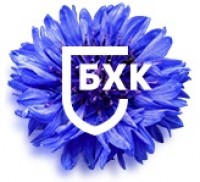
In response to the sentencing of Stefan Lazavik, convicted on November 26 by the Horki District Court under Part 1 of Art. 339 (hooliganism) to one year of imprisonment, as well as the indictment under Part 1 of Art. 339 (hooliganism) and Art. 341 of the Criminal Code (desecration of buildings and damage to property) of Viktar Losik, we, representatives of the Belarusian human rights community, note the following.
Stefan Lazavik was detained by police on September 16, 2020 on suspicion of spray-painting on August 12 protest graffiti reading “He lost and started killing. B…..d, resign!” on a bus stop shelter in Horki. A criminal case was initially opened by the Horki District Prosecutor’s Office under Art. 341 of the Criminal Code. Under pressure from investigators, Lazavik admitted involvement in the vandalism, but when on October 29 he refused to record a video confession, the prosecutor reclassified the charge under Part 1 of Art. 339 of the Criminal Code (hooliganism). On November 26, the Horki District Court sentenced Stefan Lazavik to 1 year in a general-security penal colony. Stefan Lazavik was an observer during the 2020 presidential election and took an active part in the post-election protests.
On December 7, 2020, in the village of Chaciežyna, Minsk district, police detained Viktar Losik, who was accused of hanging on a local bridge effigies of the Minister of Internal Affairs and chairperson of the precinct election commission. The effigies had signs reading “Never Forget! Never Forgive!”. Losik was also accused of spray-painting the Belarusian national coat-of-arms Pahonia on the bridge and on several local buildings. He was charged under Part 1 of Art. 339 (hooliganism) and Art. 341 of the Criminal Code (desecration of buildings and damage to property) and remanded in the pre-trial detention center in Žodzina.
According to the detainees, the actions aimed to express their protest and disagreement with the results of the presidential election.
Therefore, these actions cannot be classified as hooliganism.
In the context of the recent socio-political events, including the post-election protests, the motives of the graffiti were expressing opinions on these socially important topics.
Spray-painting the Pahonia emblem on the bridge and other structures, considering its officially recognized status as a historical and cultural value, cannot be viewed as desecration of buildings with cynical graffiti and accordingly cannot be qualified under Art. 341 of the Criminal Code.
We believe that this form of expression falls under the protection of the International Covenant on Civil and Political Rights and has nothing to do with the charges.
In accordance with Art. 19 of the Covenant, everyone shall have the right to freedom of expression; this right shall include freedom to seek, receive and impart information and ideas of all kinds, regardless of frontiers, either orally, in writing or in print, in the form of art, or through any other media of his choice. The exercise of this right carries with it special duties and responsibilities. It may therefore be subject to certain restrictions, but these shall only be such as are provided by law and are necessary: (a) for respect of the rights or reputations of others; (b) for the protection of national security or of public order (ordre public), or of public health or morals.
The accused did not encroach on sacred or historical and cultural values, did not destroy them. The graffiti themselves do not contain obscene language or language of hostility and hatred on the grounds of nationality, race, religion or social origin and other characteristics. The defendants also testified that they did not intend to call for violence.
The graffiti on the bus stop shelter and the bridge could not and did not lead to their significant damage or destruction, and the material damage from such inscriptions was clearly symbolic.
In this context, we consider the imprisonment of Stefan Lazavik and Viktar Losik to be politically motivated, and Stefan Lazavik and Viktar Losik are therefore political prisoners in accordance with paragraph 3.1 (a) of the Guidelines on the Definition of Political Prisoners.
In this regard, we, representatives of human rights organizations in Belarus, call to:
- immediately and unconditionally release Stefan Lazavik and Viktar Losik from custody and terminate their criminal prosecution;
- immediately release all political prisoners and put an end to political repression in the country.
Human Rights Center "Viasna"
Belarusian Documentation Center
Belarusian Helsinki Committee
Center for Legal Transformation “Lawtrend”
Human Constanta
PEN Belarus
Barys Zvozskau Belarusian Human Rights House
FORB Initiative
Legal Initiative




